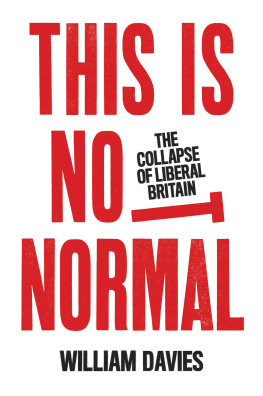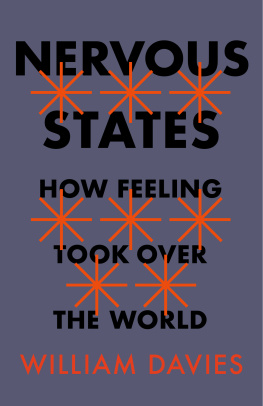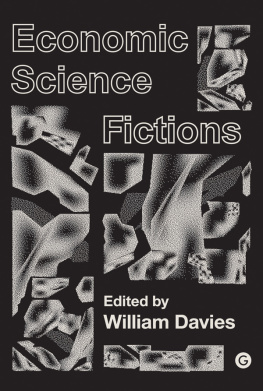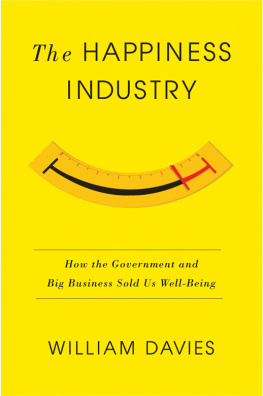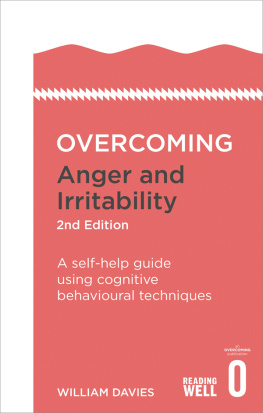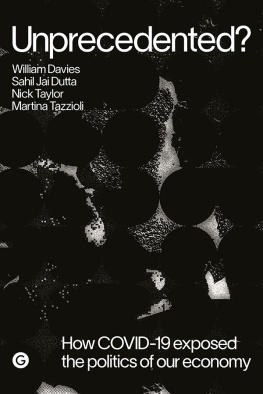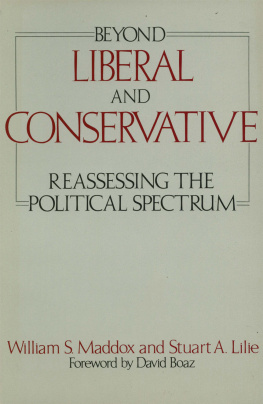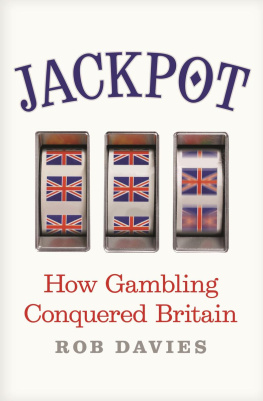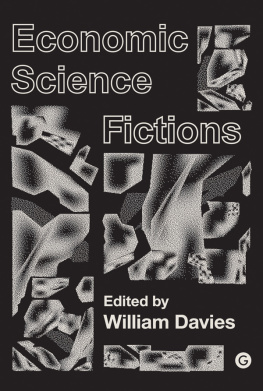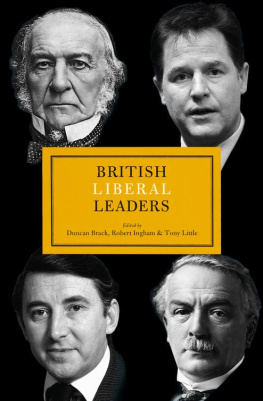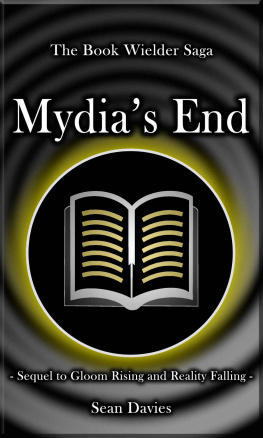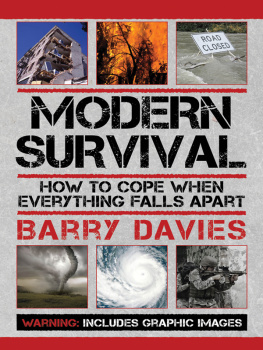William Davies - This is not Normal ; The Collapse of Liberal Britain
Here you can read online William Davies - This is not Normal ; The Collapse of Liberal Britain full text of the book (entire story) in english for free. Download pdf and epub, get meaning, cover and reviews about this ebook. publisher: Verso Books, genre: Politics. Description of the work, (preface) as well as reviews are available. Best literature library LitArk.com created for fans of good reading and offers a wide selection of genres:
Romance novel
Science fiction
Adventure
Detective
Science
History
Home and family
Prose
Art
Politics
Computer
Non-fiction
Religion
Business
Children
Humor
Choose a favorite category and find really read worthwhile books. Enjoy immersion in the world of imagination, feel the emotions of the characters or learn something new for yourself, make an fascinating discovery.
- Book:This is not Normal ; The Collapse of Liberal Britain
- Author:
- Publisher:Verso Books
- Genre:
- Rating:5 / 5
- Favourites:Add to favourites
- Your mark:
- 100
- 1
- 2
- 3
- 4
- 5
This is not Normal ; The Collapse of Liberal Britain: summary, description and annotation
We offer to read an annotation, description, summary or preface (depends on what the author of the book "This is not Normal ; The Collapse of Liberal Britain" wrote himself). If you haven't found the necessary information about the book — write in the comments, we will try to find it.
This is not Normal ; The Collapse of Liberal Britain — read online for free the complete book (whole text) full work
Below is the text of the book, divided by pages. System saving the place of the last page read, allows you to conveniently read the book "This is not Normal ; The Collapse of Liberal Britain" online for free, without having to search again every time where you left off. Put a bookmark, and you can go to the page where you finished reading at any time.
Font size:
Interval:
Bookmark:

This Is Not
Normal
This Is Not
Normal
The Collapse of
Liberal Britain
William Davies

To my mum
First published by Verso 2020
William Davies 2020
The chapters in this book draw on the following publications: Chapter 1: Initial Ruptures, Political Economy Research Centre (24 June 2016); What Sort of Crisis Is This?, openDemocracy (30 June 2016); The Crisis of Statistical Fact, see How statistics lost their power and why we should fear what comes next, Guardian (19 January 2017); Strong and Stable see Theresa Mays vapid vision for a one-party state, New York Times (11 May 2017). Chapter 2: The Corbyn Shock see Reasons for Corbyn, London Review of Books (13 July 2017); The Riddle of Tory Brexitism see What are they after?, London Review of Books (8 March 2018); The Revenge of Sovereignty on Government see Boris Johnson, Donald Trump and the Rise of Radical Incompetence, New York Times (13 July 2018); The Lure of Exit see Leave, and leave again, London Review of Books (7 February 2019); The Demise of Liberal Elites see Why we stopped trusting elites, Guardian (29 November 2019); Comedy or Demagoguery see The funny side of politics, openDemocracy (9 April 2019). Chapter 3: Democracy without Representation see They dont even need ideas, London Review of Books (20 June 2019); The Conservative Selectorate see A fanatical sect has hijacked British politics, New York Times (25 June 2019); Englands New Rentier Alliance, Political Economy Research Centre (1 August 2019); The Johnson Press see How the Johnson campaign is bringing Trumps media tactics to Britain, openDemocracy (13 June 2019); The Blizzard of Lies see Reasons to be cheerful, London Review of Books (18 July 2019); Why Everyone Hates the Mainstream Media see Why cant we agree on whats true any more?, Guardian (19 September 2019); Mutations of Leadership see How to be prime minister, London Review of Books (26 September 2019); The Party of Resentment see The Tories have lost their ideology. Now they are merely the party of resentment, Guardian (1 October 2019); The Berlusconification of Britain see How Boris Johnson and Brexit are Berlusconifying Britain, Guardian (4 December 2019); The Johnson Victory see For Johnsons Tories, the collapse of public trust isnt a problem its an opportunity, Guardian (13 December 2019).
All rights reserved
The moral rights of the author have been asserted
1 3 5 7 9 10 8 6 4 2
Verso
UK: 6 Meard Street, London W1F 0EG
US: 20 Jay Street, Suite 1010, Brooklyn, NY 11201
versobooks.com
Verso is the imprint of New Left Books
ISBN-13: 978-1-83976-090-7
ISBN-13: 978-1-83976-101-0 (US EBK)
ISBN-13: 978-1-83976-100-3 (UK EBK)
British Library Cataloguing in Publication Data
A catalogue record for this book is available from the British Library
Library of Congress Cataloging-in-Publication Data
A catalog record for this book is available from the Library of Congress
Typeset in Fournier by MJ & N Gavan, Truro, Cornwall
Printed in the UK by CPI Mackays
Contents
In the spring of 2016, Britain was a nation still broadly convinced of its own normality. It provided a standard for how constitutional democracy should work. It possessed a media that, while far from perfect, seemed committed to giving a factual account of the key events in public life. Political power was ostensibly held to account by the scrutiny of opposition and a sceptical media. Despite the tremors of the 2008 financial crisis and the pain of austerity that followed, it appeared that economic policymaking still operated within the bounds of a technocratic consensus. When it came to political procedures, the conduct of the media and the governance of the economy, the liberal centre was still just in command.
The subsequent four years destroyed this self-image, rendering the ideology of liberal norm-keeping incredible. Over a period that witnessed one historic referendum, two general elections, three prime ministers, and one chaotically handled pandemic, one liberal convention after another was openly tossed aside. Gradually at first, then at an accelerating pace, basic assumptions and constraints that had governed public life and policy were discarded. The pursuit of Brexit destroyed the liberal assumption that the job of governments is to maximise economic welfare, and threw the primacy of international markets into question. Boris Johnsons decision to prorogue Parliament in September 2019 was declared unlawful by the Supreme Court, which provoked the Conservative Party to include a cryptic pledge in its subsequent manifesto to review the relationship between the government, parliament and the courts.
The Daily Mail declared high court judges to be enemies of the people, after they ruled that Parliament would need to consent to the triggering of Article 50, which initiated the Brexit process. After their disappointment with Theresa May, pro-Brexit newspapers repurposed themselves as propaganda sheets for the Johnson administration, relishing the fact that the government was now led by one of their own celebrity columnists. Favours were returned, and media outlets were soon designated either friends or enemies of the government. While one set of journalists was being granted spurious exclusives with a character they dutifully referred to as Boris, another set Channel 4 News, the Daily Mirror, the Huffington Post, Radio 4s Today programme was being denied access to government ministers and press briefings. Downing Street began issuing political threats to public service broadcasters whenever they appeared to be enjoying too much critical autonomy. One senior government source promised that they would whack the BBC and radically reduce its power.
A new set of political arts was introduced into democracy along the way. In addition to the widely discussed threat of targeted online advertising and misinformation which is alleged to have played such an important role in the 2016 referendum political strategists grew increasingly accomplished at using comedy, confusion and distraction to undermine reasoned debate. The 2019 general election saw the Conservative Party go all out on troll tactics, such as rebranding their Twitter feed factcheckUK and disseminating false rumours about Labour activists to broadcasters. The kind of political lying and propaganda that was considered shocking in June 2016 has since become viewed with weary familiarity, raising the prospect that the damage to fact-based political argument is now terminal.
Frightening evidence emerged about the attitudes and values of the newly triumphant political demographics. Brexit voters, the vast majority of whom were born before 1965, were likely to hold the kind of authoritarian values associated with support for capital punishment, traditional gender hierarchies and tougher treatment of children. Among this primarily white, male, ageing section of English society, Islamophobia is simple common sense.
At the same time, this period witnessed the unprecedented exposure and recognition of political injustices, further contributing to the demolition of the liberal centre. The shock of Jeremy Corbyns electoral surge in the summer of 2017, which deprived May of her parliamentary majority and set the stage for the political gridlock of the following two years, represented an overdue public affirmation that austerity was socially and politically unsustainable. It was followed immediately afterwards by the horror of the Grenfell Tower fire, which offered the most harrowing demonstration of just how unequal individual lives had become. The Windrush scandal of 2018, which saw black British citizens being terrorised by government bureaucracy and threatened with deportation (an effect of the Hostile Environment immigration policy introduced in 2014), revealed a disregard for judicial norms that few had imagined the British state was capable of, at least within its own borders.
Font size:
Interval:
Bookmark:
Similar books «This is not Normal ; The Collapse of Liberal Britain»
Look at similar books to This is not Normal ; The Collapse of Liberal Britain. We have selected literature similar in name and meaning in the hope of providing readers with more options to find new, interesting, not yet read works.
Discussion, reviews of the book This is not Normal ; The Collapse of Liberal Britain and just readers' own opinions. Leave your comments, write what you think about the work, its meaning or the main characters. Specify what exactly you liked and what you didn't like, and why you think so.

